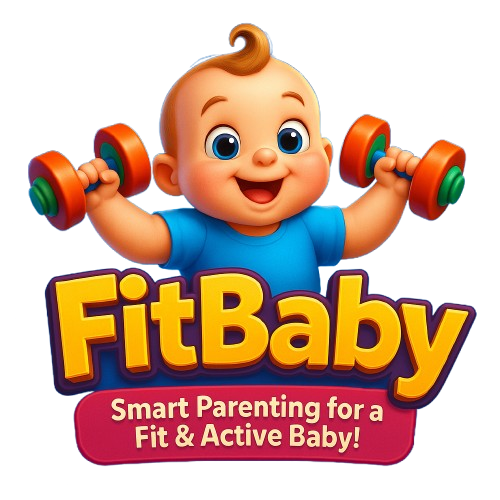Table of Contents
Introduction
Baby care requires patience, knowledge, and preparation. From feeding and diapering to sleep routines and safety, bringing a newborn baby home is an exciting and joyful experience, but it also comes with challenges.
This comprehensive guide covers essential baby care tips, newborn safety measures, and expert advice to help new parents navigate the early months with confidence.
1. Feeding Your Baby: Breastfeeding vs. Bottle-Feeding
One of the first decisions new parents face to baby care is choosing between breastfeeding and bottle-feeding.
Breastfeeding Benefits
- Provides optimal nutrition and antibodies for immunity.
- Promotes bonding between mother and baby.
- Reduces risks of allergies and infections.

Bottle-Feeding Tips
- Choose a high-quality infant formula recommended by pediatricians.
- Sterilize bottles and nipples before each use.
- Hold the baby at a 45-degree angle to prevent gas.

Pro Tip: Burp your baby gently after each feeding to avoid discomfort from trapped air.
2. Diapering: Cloth vs. Disposable
Choosing the right diapers towards baby care depends on convenience, budget, and environmental concerns.
Cloth Diapers
- Eco-friendly and cost-effective in the long run.
- Require frequent washing but are gentle on baby’s skin.

Disposable Diapers
- Highly convenient for travel and overnight use.
- May cause diaper rash if not changed frequently.

Diaper Rash Prevention:
- Change diapers every 2–3 hours.
- Use a diaper cream with zinc oxide for protection.
- Let the baby’s skin air-dry before putting on a fresh diaper.
3. Bathing & Grooming Your Newborn
Newborns don’t need daily baths—2–3 times a week is sufficient.
Sponge Bath Tips (Before Umbilical Cord Falls Off)
- Use lukewarm water and a soft washcloth.
- Clean the face, neck, hands, and diaper area gently.

Tub Bath Safety
- Use a baby bathtub with a non-slip surface.
- Test water temperature with your elbow (should be warm, not hot).
- Never leave the baby unattended, even for a second.

Grooming Essentials:
- Trim nails after a bath when they’re softer.
- Clean ears and nose with a damp cloth (no cotton swabs!).
4. Safe Sleep Practices for Newborns
Sudden Infant Death Syndrome (SIDS) prevention starts with safe sleep habits.
Safe Sleep Guidelines
- Always place the baby on their back (never on the stomach).
- Use a firm mattress with a fitted sheet (no loose blankets or toys).
- Keep the room at a comfortable temperature (68–72°F).

Nighttime Routine Tips:
- Swaddle the baby for comfort (but stop once they can roll over).
- Keep nighttime feedings calm and quiet to avoid overstimulation.

5. Common Newborn Health Issues & Solutions
Babies may experience minor health concerns—here’s how to handle them:
| Issue | Symptoms | Solution |
|---|---|---|
| Colic | Excessive crying, clenched fists | Try gentle tummy massage, white noise, or gripe water (consult a doctor). |
| Diaper Rash | Red, irritated skin | Apply diaper cream and let the area air-dry. |
| Cradle Cap | Flaky, scaly scalp | Gently brush with a soft baby brush and use mild baby shampoo. |
| Ear Infections | Fever, tugging at ears | See a pediatrician for proper treatment. |

When to Call a Doctor:
- High fever (100.4°F+ in newborns).
- Difficulty breathing or persistent vomiting.
- Unusual lethargy or refusal to feed.
6. Baby Safety at Home & While Traveling
Home Safety Checklist
- Baby-proof sharp corners, electrical outlets, and cabinets.
- Never leave the baby alone on high surfaces (changing tables, beds).
- Use a car seat correctly—rear-facing until at least age 2.

Traveling with a Newborn
- Wait at least 2 weeks before air travel.
- Pack extra clothes, diapers, and feeding supplies.
- Use a travel-friendly stroller and baby carrier for convenience.
7. Creating a Loving & Stimulating Environment
- Bonding: Skin-to-skin contact helps with emotional development.
- Playtime: Use high-contrast toys and soft music for stimulation.
- Routine: A consistent schedule for feeding, naps, and play helps babies feel secure.

Remember: You can’t spoil a newborn—respond to their cries with love and comfort.
Final Thoughts
Caring for a newborn is a rewarding journey filled with learning and love. By following these baby care, safety, and health tips, you’ll be well-prepared to give your little one the best start in life.

Did you find this guide helpful? Share it with fellow parents!
If you’re interested in The Ultimate Guide to Baby Stroller: 4 Key Features, Safety, Comfort, and Convenience be sure to check it out!.

